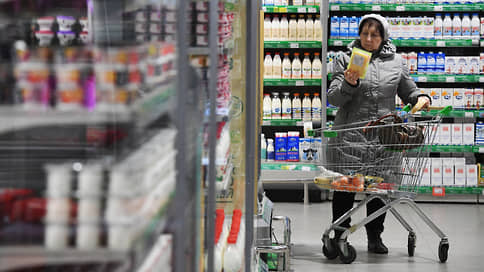Food is asked to be given a reprieve – Newspaper Kommersant No. 188 (7389) of 10/11/2022
[ad_1]

Due to the instability of consumer demand and food orders from retailers, manufacturers and suppliers are asking large chains to relax requirements for the remaining shelf life of goods. Suppliers assure that the offer will not affect the quality of products for consumers. Experts consider the idea justified for durable goods with a high level of turnover in retail.
At the disposal of Kommersant was a letter dated October 5, in which the association of producers and suppliers of food products “Rusprodsoyuz” (includes, in particular, “Mistral Trading”, “Russol”, “Dymov”, “Makfa”, “May”) offers The head of the Ministry of Industry and Trade, Denis Manturov, recommends that federal retailers set a minimum threshold for the remaining shelf life of 45% for goods with a shelf life of a year or more, and for products with a shelf life of up to 12 months – at 50%. This is not about reducing the quality of the goods supplied, but about reducing unnecessary requirements, the association clarifies. The Ministry of Industry and Trade told Kommersant that the letter had not yet been received.
According to Rusprodsoyuz, the requirement of large chains for the remaining shelf life of food products today averages 60–65%. For example, many federal retailers do not accept from suppliers goods with a shelf life of 730 days, starting from the 439th day until its end. At the same time, the average turnaround time, that is, sales, in the retail of durable goods is about 50 days, the association’s letter states.
Manufacturers and suppliers are now facing a “chaotic surge in orders” from retailers, and existing stock levels may not meet “stringent retailer requirements for remaining shelf life,” the document says.
“Suppliers, on the one hand, cannot complete the order in full and receive penalties for underdelivery, and on the other hand, they are forced to dispose of goods that do not pass the remaining shelf life, but retain their consumer properties,” the letter says. .
According to Mikhail Burmistrov, General Director of Infoline-Analytics, today there is no need for strict regulatory regulation of the issue of the minimum value of the residual shelf life, recommendations from the Ministry of Industry and Trade would be quite enough to resolve controversial issues. The remaining shelf life of durable goods, including canned food and groceries, can be compared with the turnover rate in stores of this group of goods, and, based on this, retailers can decide on contractual practices with distributors, the expert believes.
Magnet, Lenta, Verny did not provide any comments. Azbuka Vkusa noted that the requirements for a residual shelf life of at least two thirds of the total shelf life remain unchanged, since the freshness of products is important for the chain and its customers. X5 Group (Pyaterochka, Perekrestok, Chizhik chains) noted that the remaining shelf life for long-term storage food products (more than a year) at the retailer is 45% of the total shelf life, goods with a shelf life of 6 to 12 months – 60%.
Marat Ibragimov, a senior analyst at Gazprombank, believes that retail chains should, for their part, meet suppliers halfway and share risks with them if they want to guarantee the availability of goods on the shelf and thus secure traffic for themselves.
Against the backdrop of economic and political turbulence over the past two years, retailers and suppliers are constantly faced with the instability of demand and supply, says Mikhail Burmistrov. At the same time, large federal chains are developing logistics services for suppliers and, together with them, are actively implementing supply chain management projects. However, according to the expert, small suppliers have more problems organizing their own logistics, so the opportunities for effective interaction with retailers are limited.
[ad_2]
Source link





